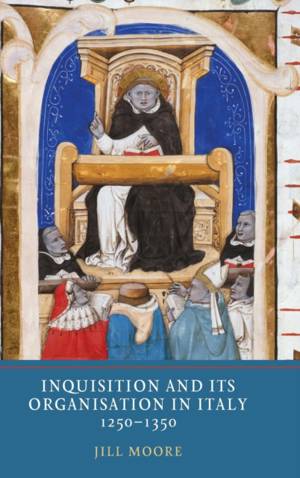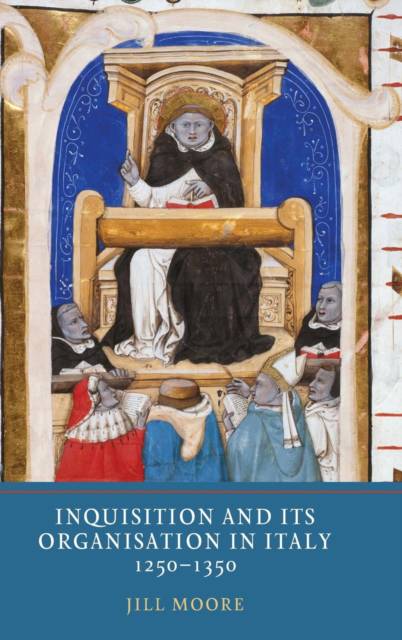
- Retrait gratuit dans votre magasin Club
- 7.000.000 titres dans notre catalogue
- Payer en toute sécurité
- Toujours un magasin près de chez vous
- Retrait gratuit dans votre magasin Club
- 7.000.000 titres dans notre catalogue
- Payer en toute sécurité
- Toujours un magasin près de chez vous
Description
A strikingly original approach to the inquisition movement in Italy, examining the roles of the protagonists. Inquisition against heresy in Italy was a partnership between the papal inquisitor, usually a Dominican or Franciscan friar, the local bishop and the civic authority; and it is generally considered that the inquisitor was the leading figure, from the mid thirteenth century onwards. This book seeks to question whether this is true. Through an examination of the roles of the different partners, and in particular the part played by the lay and clerical staffof the inquisition, it offers a much more diverse picture, arguing that the inquisitor was often supplicant rather than dominant, and the civil authority continued to play a major part.
Dominicans and Franciscans took different approaches to inquisition, and related in different ways to their parent orders. Drawing on a wealth of unpublished sources, the book analyses these divergences, and shows the internal operations of the inquisition. It also teases out the lives and histories of the individuals who spent their careers working for the inquisition - notaries, messengers, spies and many more - and shows how inquisition against heresy was part of the civic fabric of the Middle Ages. JILL MOORE gained her PhD at Birkbeck, University of London.
Dominicans and Franciscans took different approaches to inquisition, and related in different ways to their parent orders. Drawing on a wealth of unpublished sources, the book analyses these divergences, and shows the internal operations of the inquisition. It also teases out the lives and histories of the individuals who spent their careers working for the inquisition - notaries, messengers, spies and many more - and shows how inquisition against heresy was part of the civic fabric of the Middle Ages. JILL MOORE gained her PhD at Birkbeck, University of London.
Spécifications
Parties prenantes
- Auteur(s) :
- Editeur:
Contenu
- Nombre de pages :
- 314
- Langue:
- Anglais
- Collection :
- Tome:
- n° 8
Caractéristiques
- EAN:
- 9781903153895
- Date de parution :
- 17-05-19
- Format:
- Livre relié
- Format numérique:
- Genaaid
- Dimensions :
- 156 mm x 234 mm
- Poids :
- 616 g







